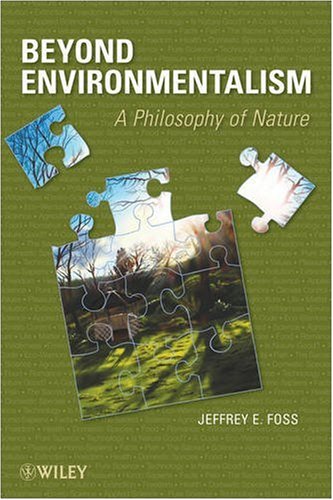

Most ebook files are in PDF format, so you can easily read them using various software such as Foxit Reader or directly on the Google Chrome browser.
Some ebook files are released by publishers in other formats such as .awz, .mobi, .epub, .fb2, etc. You may need to install specific software to read these formats on mobile/PC, such as Calibre.
Please read the tutorial at this link: https://ebookbell.com/faq
We offer FREE conversion to the popular formats you request; however, this may take some time. Therefore, right after payment, please email us, and we will try to provide the service as quickly as possible.
For some exceptional file formats or broken links (if any), please refrain from opening any disputes. Instead, email us first, and we will try to assist within a maximum of 6 hours.
EbookBell Team

5.0
108 reviewsBeyond Environmentalism is the first book of its kind to present a timely and relevant analysis of environmentalism. The author's decades of experience as a philosopher of science allow him to critically comprehend scientific issues and to develop and explain sound, ethical policies in response to them. The result is a volume that builds a philosophy of nature and helps the reader assess humankind's relationship with and impact on the world around us.
This innovative book discusses the inconsistencies, both scientific and philosophical, of popular environmentalism and sheds new perspectives on the issues, causes, and debates that embrace society today. The goal is not to settle environmental issues once and for all, but rather to provide the basis for more reasoned, scientific, and productive debates. The need for a new philosophy of nature is explored through methodological discussion of several topics, including:
The rise and fall of scientific proof
Nature in religion, romance, and human values
Humankind's responsibility to the environment
The value of freedom
Kinship among species
Numerous case studies throughout the book delve into global warming, the ''sixth extinction,'' the precautionary principle, pollution, and other popular issues within environmentalism. Feature boxes guide the reader through complex topics such as eco-sabotage, the Gaia hypothesis, and the urban heat-island effect, while vivid illustrations demonstrate scientific data, theories, and philosophical arguments in a reader-friendly manner.
With its balanced approach to provocative issues, Beyond Environmentalism serves as an excellent, thought-provoking supplement for courses on environmental studies at the undergraduate and graduate levels. It is also an interesting and accessible read for anyone with a general interest in environmental issues.